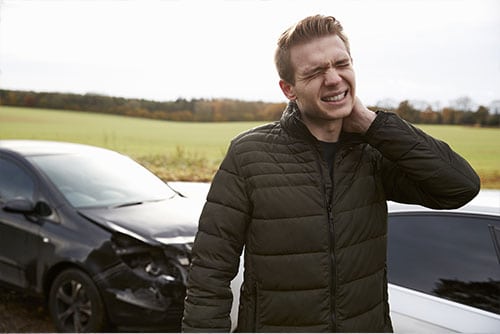
Most people are anxious to figure out how they will pay for their emergency room bills, car repairs, or down payments to replace a totaled vehicle. This situation can create massive amounts of stress for people who are already coping with the physical and emotional trauma of a car accident. Our clients often ask us who pays for the medical bills in a car accident, and whether they can expect the insurance company of the at-fault driver to compensate them for their damages. In this article, we hope to answer this question in detail and give you all the facts you need to make an informed decision after a car accident.
Who Pays For The Medical Bills In A Car Accident?
It is important to remember that your car accident case is unique. In most cases, the at-fault driver in your car accident will have a complete car insurance policy that covers all damages. But that is not always the case, and getting coverage for the auto accident worth can sometimes be challenging. The following situations can present some difficulty:
- Claims against the government
- Claims against your own insurance
- Claims against the at-fault driver’s employer
Read on for a fuller explanation of each of these situations, and what you can do to protect yourself from unfair judgements and claim full compensation for your injuries.
Claims Against the Government
If you are filing a car accident case against a government or quasi-government entity, you will need to follow two separate laws: the Local Tort Claims Act and the State Tort Claims Act. It is the government who pays for the medical bills in a car accident if one of their vehicles caused the crash. For example, if your car was struck by a municipal bus that was owned by your city government, you would file a claim against the local government. The city would then be responsible for paying your damages.
If you feel like you need some legal help, contact our Auto Accident Law attorney to schedule a free case evaluation today.
FREE CASE EVALUATIONClaims Against Your Own Insurance
In uninsured or underinsured motorist cases, you will need to file a claim against your own insurance company. Your accident qualifies as an uninsured motorist case if the other driver did not have insurance or fled the scene before you could identify them. Underinsured cases refer to situations where the at-fault driver does not carry enough insurance coverage to pay for your injuries. In both cases, you should file a claim against your own insurance company for the remaining compensation.
If neither you nor the at-fault driver have insurance, you will have to file your car accident claim against the Uninsured Division of the Maryland Automobile Insurance Fund (MAIF), the insurer of last resort for the State of Maryland.
Respondent Superior Cases
You may be wondering who pays for the medical bills in a car accident in Maryland if one of the vehicles was owned by a company. Some car accident cases require you to file a claim against the insurance company of a driver’s employer. According to the principle of Respondent Superior, an employer or agency—such as a taxicab or trucking company—can be held legally responsible for the actions of another person.
If an employee causes a car accident while they are working, the victim can file two lawsuits: one against the driver for negligence, and one against the employer under the principle of Respondent Superior. In these situations, the employer is sometimes held responsible for the at-fault driver’s actions. The employer’s insurance company may be the one to compensate you for damages.
Contact Us
Each car accident case is unique. It’s up to your attorney to determine which of these strategies best suits your case and to advocate for your rights in court. You deserve aggressive, dedicated representation from an attorney that knows the intricacies of Maryland car accident law. If you still have questions about who pays for the medical bills in a car accident, call 410-753-4611 for a free initial consultation.
